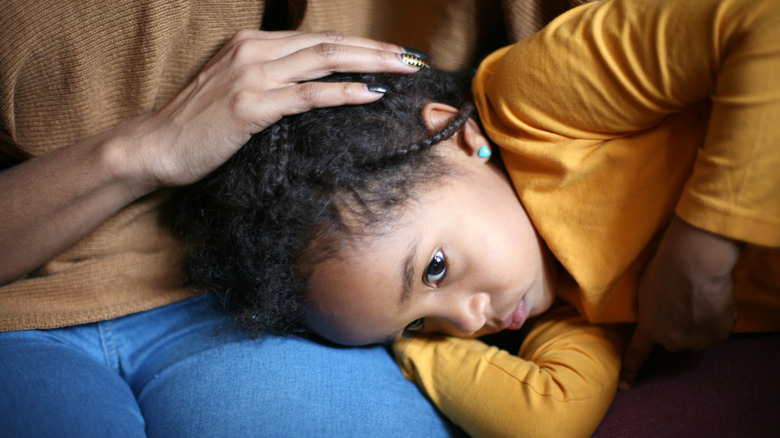Pediatric Infectious Disease Expert Shares Tips On How To Prevent Norovirus In Children
In the U.S., there are approximately 2,500 annual norovirus outbreaks reported across the country, according to data from the U.S. Centers for Disease Control and Prevention (CDC). Generally speaking, adults aged 85 or older and children younger than the age of 5 are more likely to require medical care for cases of infection.
"Norovirus is a highly infectious virus that leads to very significant vomiting and diarrhea," said Dr. Sharon Nachman, Chief of the Division of Pediatric Infectious Diseases at Stony Brook Children's Hospital, in an interview with Health Digest. "It very easily passes from person to person and even by [the] touch of your hand connecting to virus [particles] sitting on fomites (things like toys)," she explained.
Dr. Nachman stated how the transfer of germs through direct contact makes children particularly vulnerable to norovirus exposure. "Younger children often touch toys and put their hands in their mouth, allowing for transmission of the virus," she said. "In children across the ages, norovirus can easily lead to dehydration, and in some cases severe dehydration can lead to Emergency Department evaluation and hospital admission."
The importance of practicing proper hand hygiene
Dr. Nachman went on to explain how testing options are often limited when it comes to norovirus infections. "There really is no good, quick, accurate test for norovirus," she said. "By the time a test result would come back, the parent and child could have recovered from their symptoms but could have easily passed the virus to many others."
However, this doesn't mean there aren't preventative measures caregivers can take to help protect their loved ones from contracting the virus. "There are several steps to be taken to protect your child and yourself," Dr. Nachman stated. "Like with many other viruses, prevention is key," she said. "These include good hand-washing, particularly in younger children who often may not do such a good job of washing their hands after using the bathroom."
Lastly, in the event that a child exhibits symptoms of norovirus infection, Dr. Nachman advised keeping them separated from others, if possible, in order to help prevent viral spread. She concluded the interview with her last tip, stating, "[Keep] a child out of school until they are fever-free for 24 hours and of course, [keep] a child out of school who has had more than 3 stools in 24 hours."

